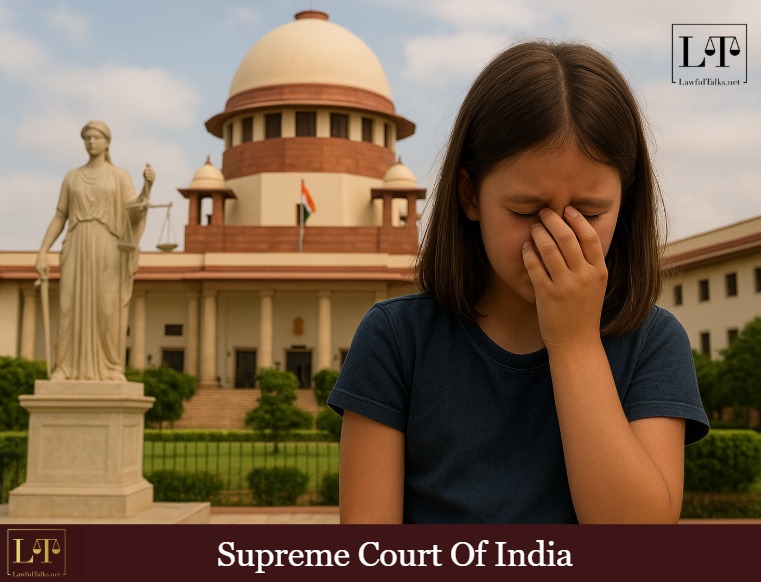Allahabad HC Sets Aside Afzal Ansari's Conviction, Allows Him to Continue as MP

In a significant ruling, the Supreme Court of India has clarified that the mere act of touching the private parts of a minor does not amount to rape or penetrative sexual assault under the Indian Penal Code (IPC) or the Protection of Children from Sexual Offences (POCSO) Act. The Court emphasized the need for precise interpretation of these statutes and accordingly modified a conviction, treating the conduct as a lesser, though still serious, offense.

The bench, comprising Justice Ahsanuddin Amanullah and Justice Joymalya Bagchi, delivered the judgment while hearing the appeal of Laxman Jangde, who had originally been sentenced to 20 years’ rigorous imprisonment. On reviewing the case records, the Court noted that the consistent allegation was that the accused had touched the victim’s private parts, but no act of penetration had taken place.
“In this view of the matter, we find that the conviction under Section 376AB of the IPC and Section 6 of the POCSO Act cannot be sustained,” the bench observed.
The Court explained that a straightforward reading of the evidence made it clear that the allegations did not fulfill the requirements of Section 375 of the IPC or Section 3(c) of the POCSO Act.
“A plain reading of the evidence and other materials on record reveal that the offence made out from such allegations do not satisfy the ingredients of either Section 375 of the IPC or Section 3(c) of the POCSO Act. Thus, to that extent, the conviction cannot be sustained,” the Court said.
Instead, the Court held that the conduct of the accused clearly came within the ambit of Section 354 of the IPC (outraging the modesty of a woman) and Section 9(m) of the POCSO Act (aggravated sexual assault). The sentence was therefore reduced to five years’ rigorous imprisonment under Section 354 IPC and seven years under Section 10 of the POCSO Act, with both sentences to run concurrently.
The fine of ₹50,000 was maintained, with the Court directing that the amount be paid to the victim as compensation.
Case title : Laxman Jangde v State of Chhattisgarh

Nandani Mishra
Second Year, B.SC LLB, (cybersecurity) Hons, National law University
Latest Posts
Categories
- International News 19 Posts
- Supreme Court 390 Posts
- High Courts 383 Posts



















































































































































































































































































































































































































































































































































































































































































































































































































